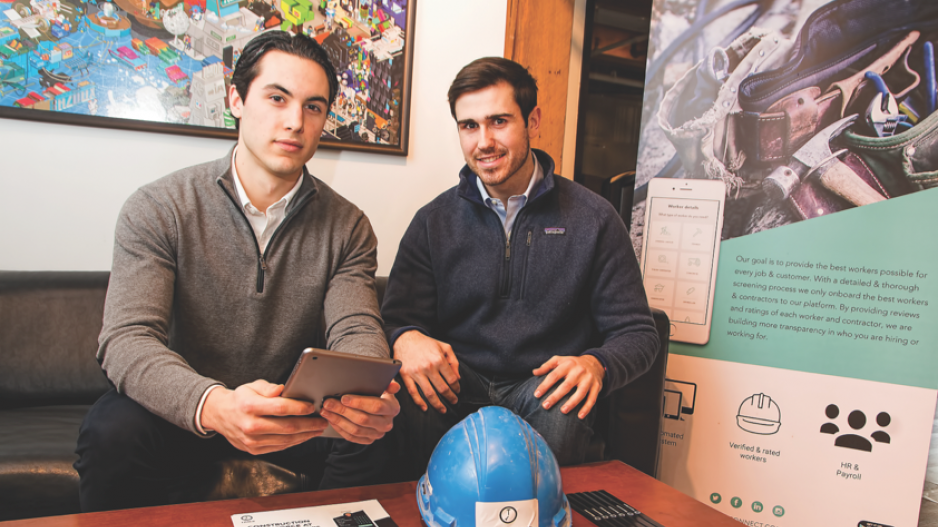Limits on the federal temporary foreign worker program, strains on the region’s transportation network and high housing costs for workers are putting the region on the path toward “crisis levels in terms of labour,” according to third-generation real estate developer Mike Bucci.
Conditions have gotten so bad in the past year the vice-president of Bucci Developments Ltd. is bringing in workers from his Calgary operations to finish up work on condos dotting the Metro Vancouver landscape.
But Faber Technologies CEO Sebastian Jacob isn’t counting on most developers to truck in workers from other provinces to meet deadlines.
“That trial-and-error process [of hiring new workers] doesn’t really need to happen,” said Jacob, whose startup is seizing on the local labour shortages to become an online cupid of sorts for construction companies in need of labourers.
But instead of connecting users for romantic pairings, Faber is using an online platform and mobile app to play matchmaker between developers and workers.
“This is on a flexible model,” Jacob said. “It may be people in school who may only want a couple of months in the summer to work who may not have a network in construction.”
The company has a pool of about 1,000 workers, mostly unskilled, that can connect with construction companies’ HR departments when they need labour on short notice.
Pay is determined on past experience and skills, which Faber verifies.
Non-skilled workers start at $18 an hour; skilled workers can make up to $36 hour.
Faber takes a percentage on the logged hours, and chief revenue officer John Reid told BIV the company is exploring removing the maximum limits on pay.
Meanwhile, the app tracks workers’ hours, skills, projects they’ve worked on and performance reviews from past contractors.
Companies then review the billed hours and pay an invoice at the end of a week.
Faber’s entry into the Vancouver market is a culmination of the CEO’s own job experience.
Jacob helped launch the restaurant food delivery app DoorDash in Vancouver beginning in 2015. Prior to that he worked for the leasing team at Bosa Properties Inc.
He said time spent with both the San Francisco-based tech company and the Vancouver real estate developer lent itself to understanding marketplace supply and demand for his current venture, which has been in development for about a year.
The Vancouver-based company got its start in the Silicon Valley, where Jacob and Reid began building the product and raising capital from American investors.
“A lot of them pushed us to stay out there and build it out of the U.S. and launch it from San Francisco,” Jacob said, “but we were pretty adamant that Vancouver was the market we wanted to help the most.”
Faber plans to expand to Calgary, Edmonton and Toronto by the end of 2018’s second quarter.
“There’s quite a scalability to their model in terms of opening up in other cities,” said Bucci, before adding that Faber still needs to build out its roster of workers to make it comparable to other temporary-labour agencies.
He said Vancouver’s labour shortages have forced him to get creative, which is why he’s using Faber in addition to bringing in workers from Alberta.
Although Calgary isn’t facing a shortage of temporary labourers, Bucci said he’s open to using the online labour marketplace when Faber launches in Alberta later this year.
“There’s some efficiencies to be wrung out of the temp-labour budget. We will spend, gosh, easily $1 million per project on temp labour,” he said.
“So if I can dial in 10%, 15% efficiencies on the temp-labour turnover and of course the management of their hours and all this fun stuff, that’s very worthwhile.” •




